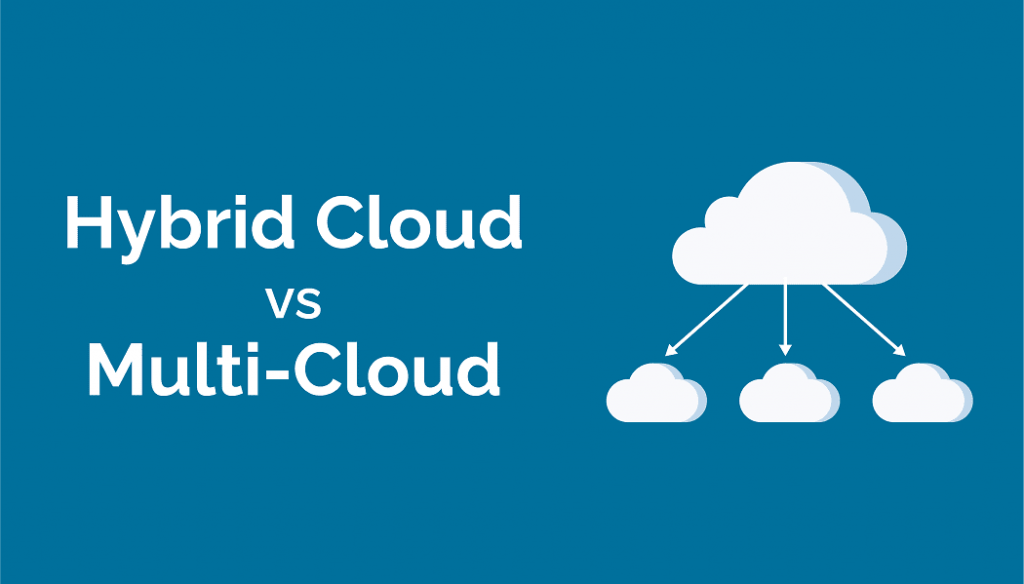Choosing the appropriate cloud computing strategy for your company
Cloud computing has completely transformed the way we do business. The cloud has allowed firms to spend their time and attention on developing technology rather than managing infrastructure, leading to a surge in startup and small business innovation.
Most likely, if you’re reading this, you don’t need a definition of cloud computing, but just in case, here in the cloud, computing resources are made available as a service and are maintained by the cloud provider instead of the end-user. In the past, corporations bought and maintained their own software and hardware. Knowing the differences and similarities between hybrid and multi-cloud solutions will help you decide which approach is right for your business.
To discover more about cloud computing, including its rich history, the numerous models and settings it integrates, and the overall business benefits, check out Mondoze’s in-depth tutorial.
Hybrid cloud and multi-cloud sound disturbingly similar and are sometimes used interchangeably. However, while they both use cloud services from several providers, they do so in distinct ways and refer to different cloud setups.
What is Hybrid Cloud computing?
Hybrid cloud computing differs from multi-cloud computing in one interesting way: When it comes to hybrid cloud computing, private clouds are combined with public cloud computing providers. An on-premises data centre operated and maintained directly by the business using the cloud computing configuration is required for it to be deemed hybrid.
As a result of achieving a hybrid cloud approach, businesses can deploy in private IT environments, allowing them to have greater control over their configurations and, in the case of larger businesses, potentially saving money on Redundancy can be achieved by combining a private cloud with a public cloud for specific services. A hybrid model can take advantage of the scalability of public cloud services while hosting specific systems that may have particular requirements to remain on a private cloud, thereby taking advantage of both benefits.
However, when businesses begin to use several public cloud services, defining cloud computing becomes more difficult. Multi-cloud is when multiple public cloud services work together.
What is Multi-Cloud Computing?
A business employing various public cloud providers to achieve specific tasks or workloads, such as one for analytics workloads and another for public-facing websites, is called multi-cloud computing. There are several reasons for choosing a multi-cloud arrangement: risk management, avoiding lock-in and reliance on one provider, regulatory compliance, etc.
By integrating various cloud providers, a business can make use of each’s distinct strengths and drawbacks. When computing resources are spread among multiple computers, the risk of data loss or going down is reduced. A multi-cloud configuration is especially beneficial for small businesses, as it allows them to optimise costs and services by choosing individual cloud providers for specific purposes, rather than one huge cloud provider that may contain features small businesses do not use.
Some businesses may utilise a hybrid and multi-cloud system, where they use a private cloud in addition to several public clouds. However, if a business just utilises one public cloud service in addition to a private cloud, it is only termed a hybrid cloud. Because multi-cloud consists of more than one public cloud, it provides a distinct advantage over the others.
Choosing the best cloud alternative for your small business or startup
When it comes to hybrid or multi-cloud strategies, small businesses are great candidates. Many of today’s small firms are cloud-native, which means they were born in the cloud but never maintain their own infrastructure, instead of adopting a multi-cloud approach.
In the words of Sharma (EB), “Most smaller companies adopt multi-cloud architectures almost by necessity. They have two needs:
1) They want to focus on building their apps and not reinvent the wheel.
2) They want tools and services that are best of breed in their respective areas, in terms of productivity and ROI. ” A lot of the time, working with an outside cloud provider is the consequence of a growing business’s need to achieve certain outcomes on a budget.
A single service provider may make sense, but you run the danger of being unable to access the kind of specialised technology that encourages creative ideas and rapid iteration.
To determine if your business should pursue the hybrid or multi-cloud approach, look at where your non-cloud resources are located. Using a hybrid cloud is the way to go if your business can afford and prefers to operate a private cloud on-premises due to specific security or configuration requirements. A multi-cloud solution, on the other hand, offers the same benefits in terms of disaster recovery, compliance, and flexibility, but without the autonomy that comes with having a private cloud. Multi-cloud delivers the flexibility and reliability that most small and mid-sized businesses demand, without the complexity and infrastructure expenditure necessary for a hybrid cloud configuration.
As cloud computing is all about empowering developers and businesses, establishing a hybrid or multi-cloud computing architecture is just another approach to make use of the cloud’s potential.
To discover more about Mondoze’s cloud services and how they may help your business, feel free to visit our Mondoze Global product offering /Cloud Hosting Plans.


